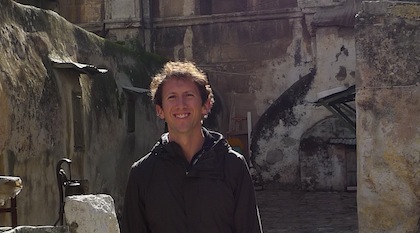
Hugh Rabagliati
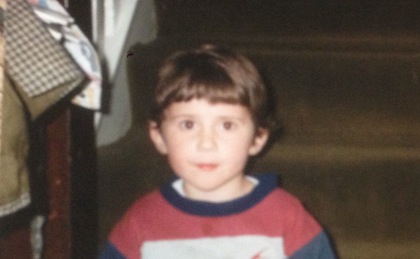
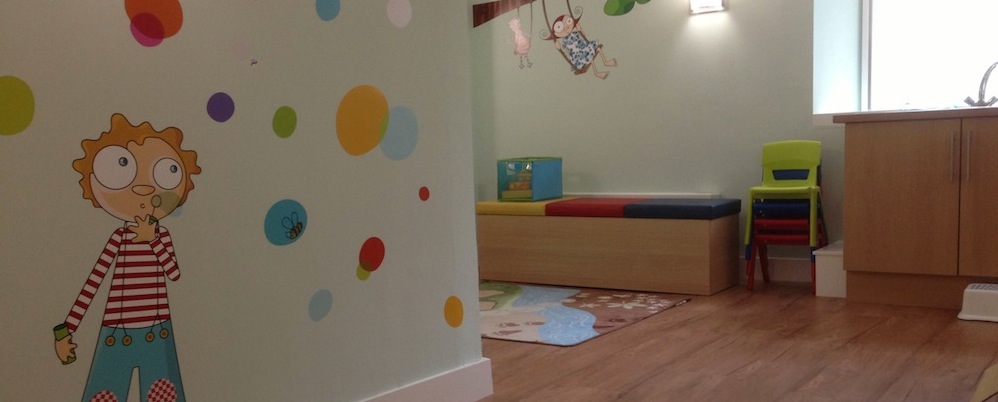
This site provides information about us, and the research that we do. Most of our studies take place in our fabulous new developmental lab at 7 George Square, pictured above.
We are part of a growing developmental science community at the University of Edinburgh. Families who are interested in taking part in studies can find lots more information at the website for Wee Science, the umbrella for all of the child developmental work in the School of Philosophy, Psychology and Language Sciences.
Students interested in getting involved in our research should get in touch with Hugh Rabagliati directly. You might also be interested in finding out about some of the other wonderful developmental labs at the University of Edinburgh, including ElfLand and D.A.R.T.
We're a motley collection of researchers and students, all interested in how kids think and talk. There are lots of opportunities for getting involved, from undergraduates interested in getting their first research experience, to Ph.D students interested in a postdoc. Just get in contact.


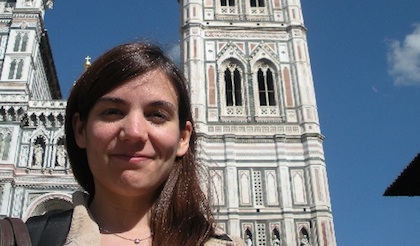
I am interested in the idea that people (both children and adults) understand others partly by anticipating what they are about to say. Studying how we do it will hopefully pave the way to understanding how we can take turns so smoothly in conversation and even complete one another’s utterances at times.
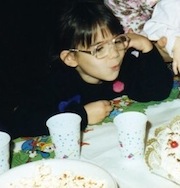
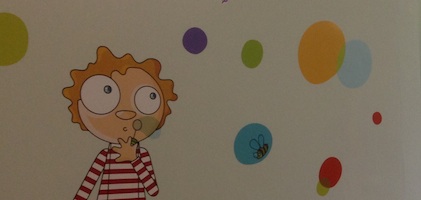
For example, did you know that when two people talk, after a while they start to spontaneously imitate each other's words and gestures? Currently, I'm testing a couple of hypotheses trying to find out why do people do that. (Cześć means Hi in Polish.)

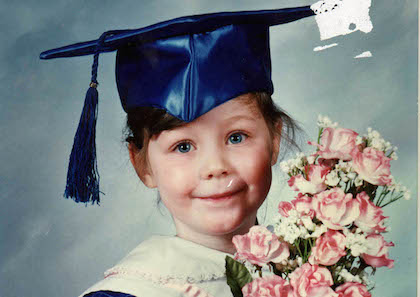


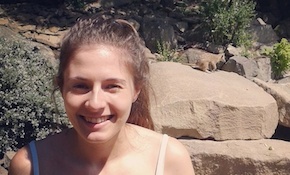

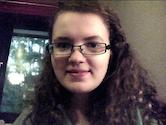
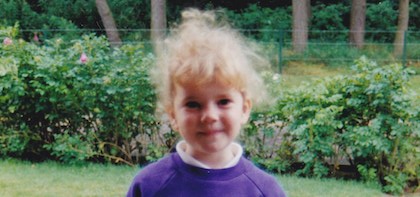
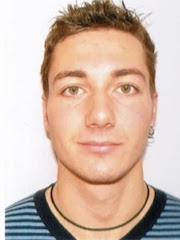
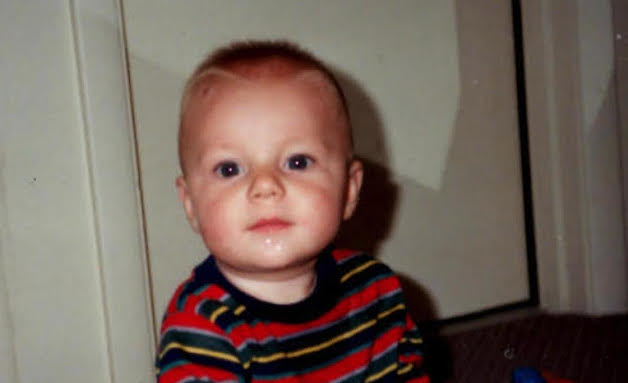

Gambi, C, Jindal, P., Sharpe, S., Pickering, M.J. & Rabagliati, H. (in press). The relation between preschoolers’ vocabulary growth and their ability to predict and recognize words. Child Development.[link]
Tobar, A., Rabagliati, H. & Branigan, H. (2021). Speakers extrapolate community-level knowledge from individual linguistic encounters. Cognition, 210, 104602.[link]
Dautriche, I., Goupil, L., Smith, K. & Rabagliati, H. (2021). Knowing how you know: Toddlers reevaluate words learned from an unreliable speaker. Open Mind, 5, 1-19.[link]
Heyman, T., Moors, P. & Rabagliati, H. (2020). The benefits of adversarial collaboration for commentaries. Nature Human Behaviour, 4, 1417.[link]
Ebersole, C.R., Mathur, M.B., ... Rabagliati, H., ... & Nosek, B.A. (2020). Many Labs 5: Testing pre-data-collection peer review as an intervention to increase replicability. Advances in Methods and Practices in Psychological Science, 3, 209-331.[link]
Corps, R. & Rabagliati, H. (2020). How top-down processing enhances comprehension of noise- vocoded speech: Predictions about meaning are more important than predictions about form. Journal of Memory and Language, 113, 104-114.[link]
Rabagliati, H., Moors, P., & Heyman, T. (2020). Can item effects explain away the evidence for unconscious sound symbolism? An adversarial commentary on Heyman, Maerten, Vankrunkelsven, Voorspoels and Moors (2019) Psychological Science, 31(9), 1200-1204.[link]
The ManyBabies Consortium (2020). Quantifying sources of variability in infancy research using the infant-directed speech preference. Advances in Methods and Practices in Psychological Science, 3(1), 24-52. [link]
Rabagliati, H., Corley, M., Dering, B., Hancock, P.J.B., King, J., Levitan, C.A., Loy, J., & Millen, A.E. (2020) Many Labs 5: Registered Replication Report of Crosby, Monin and Richardson (2008). Advances in Methods and Practices in Psychological Science, 3(3), 353-363.[link]
Lindsay, L., Gambi, C., & Rabagliati, H. (2019). Preschoolers optimize the timing of their conversational turns through flexible coordination of language comprehension and production. Psychological Science, 30, 504-515.[pdf]
Rabagliati, H., Delaney-Busch, N., Snedeker, J., & Kuperberg, G. (2019). Spared bottom-up but impaired top-down interactive effects during naturalistic language processing in schizophrenia: Evidence from the visual world paradigm. Psychological Medicine,49,1335-1345. [pdf]
Tobar, A., Rabagliati, H. & Branigan, H. (2019). Lexical entrainment reflects a stable individual trait: Implications for individual differences in language processing. Journal of Experimental Psychology: Learning, Memory, and Cognition. 46(6), 1091–1105.
Rabagliati, H., Ferguson, B., & Lew-Williams, C. (2019). The profile of abstract rule learning in infancy. Meta-analytic and experimental evidence. Developmental Science,22e12704. [pdf]
Srinivasan, M., Berner, C., & Rabagliati, H. (2019). Children’s use of polysemy to structure new word meanings. Journal of Experimental Psychology: General,148926-942. [pdf]
Gambi, C., Gorrie, F., Pickering, M.J. & Rabagliati, H. (2018). The development of linguistic prediction: Predictions of sound and meaning in 2-to-5 year olds. Journal of Experimental Child Psychology, 173, 351-370. [pdf]
Rabagliati, H., Robertson, A. & Carmel, D. (2018). The role of awareness in understanding language. Journal of Experimental Psychology: General, 147(2), 190-208. [pdf]
Rabagliati, H. & Robertson, A. (2017). How do children learn to avoid referential ambiguity? Insights from eyetracking. Journal of Memory and Language, 94 15-27. [pdf]
Hampton, S., Rabagliati, H., Sorace, A. & Fletcher-Watson, S.(2017). Autism and bilingualism: A qualitative interview study of parents' perspectives and experiences. Journal of Speech, Language and Hearing Research, 60,435-446. [pdf]
Frank, M. C., Bergelson, E., Bergmann, C., Cristia, A., Floccia, C., Gervain, J., Hamlin, J. K., Hannon, E. E., Kline, M., Levelt, C., Lew-Williams, C., Nazzi, T., Panneton, R., Rabagliati, H., Soderstrom, M., Sullivan, J., Waxman, S., Yurovsky, D. (2017). A collaborative approach to infant research: Promoting reproducibility, best practices, and theory-building. Infancy, 22(4), 421-435. [pdf]
Rabagliati, H., Doumas, L.A.A., & Bemis, D.K. (2017). Representing composed meanings through temporal binding. Cognition, 162, 61-72. [pdf]
Gambi, C., Pickering, M.J., & Rabagliati, H.(2016). Beyond associations: Sensitivity to structure in preschoolers' predictions. Cognition, 157, 340-351. [pdf]
Rabagliati, H., Gambi, C., & Pickering, M.J. (2016). Learning to predict or predicting to learn? Language, Cognition and Neuroscience 31, 94-105.[pdf]
Hahn, N., Snedeker, J. & Rabagliati, H. (2015). Rapid linguistic ambiguity resolution in young children with autism spectrum disorder: Eye tracking evidence for the limits of weak central coherence. Autism Research. 8, 717-726. [pdf]
Srinivasan, M. & Rabagliati, H. (2015). How concepts and conventions structure the lexicon: Cross-linguistic evidence from polysemy. Lingua. [pdf]
Rabagliati, H. & Bemis, D.K. (2013). Prediction is no panacea: The key to language is in the unexpected. (Commentary on Pickering and Garrod's An integrated theory of language comprehension and production.). Behavioral and Brain Sciences, 36, 372-373.
Rabagliati, H. & Snedeker, J. (2013). The truth about chickens and bats: Ambiguity avoidance distinguishes types of polysemy. Psychological Science, 24, 1354-1360. [pdf]
Rabagliati, H., Pylkkänen, L., & Marcus, G.F. (2013). Top-down influence in young children's linguistic ambiguity resolution. Developmental Psychology, 49, 1076-1089.[pdf]
Rabagliati, H., Senghas, A., Johnson, S.P., & Marcus, G.F. (2012). Rule learning: Advantage language or advantage speech? Plos ONE, 7(7): e40517. [pdf]
Rabagliati, H., Marcus, G.F., & Pylkkänen, L. (2011). Rules, radical pragmatics, and restrictions on regular polysemy. Journal of Semantics, 28(4),485-512. [pdf]
Rabagliati, H., Marcus, G.F., & Pylkkänen, L. (2010). Shifting senses in lexical semantic development. Cognition, 117(1), 17-37. [pdf]
Dikker, S., Rabagliati, H., Farmer, T. A., & Pylkkänen, L. (2010). Early occipital sensitivity to syntactic category is based on form typicality. Psychological Science, 21(5), 623-628 [pdf]
Dikker, S., Rabagliati, H., & Pylkkänen, L. (2009). Sensitivity to Syntax in Visual Cortex. Cognition, 110(3), 293-321 [pdf]
Johnson, S. P., Fernandes, K. J., Frank, M. C., Kirkham, N. Z., Marcus, G. F., Rabagliati, H., & Slemmer, J. A. (2009). Abstract Rule Learning for Visual Sequences in 8- and 11-Month-Olds. Infancy, 14(1), 2-18 [pdf]
Marcus, G.F. & Rabagliati, H. (2006). What developmental disorders can tell us about the nature and origins of language. Nature Neuroscience, 9(10), 1226-9 [pdf]
Marcus, G.F. & Rabagliati, H. (2006). Genes and domain specificity, Trends in Cognitive Science, 10(9), 397-8. [pdf]
Marcus, G.F., Rabaglia, C.D., & Rabagliati, H. (2013). Modularity and descent with modification. In Boeckx, C. & Kleanthes, K.G., (Eds.), The Cambridge handbook of biolinguistics. Cambridge, UK: CUP.
Marcus, G.F., & Rabagliati, H. (2008). Language acquisition, domain specificity and descent with modification. In Colombo, J., McCardle, P., & Freund, L., (Eds.), Infant Pathways to Language:, Methods, Models and Research Directions. Hillsdale, NJ: Lawrence Erlbaum.
You can email Hugh on hugh.rabagliati@ed.ac.uk, or use the form below to send a message to the general lab email (e.g., if you're interested in participating in a study.)